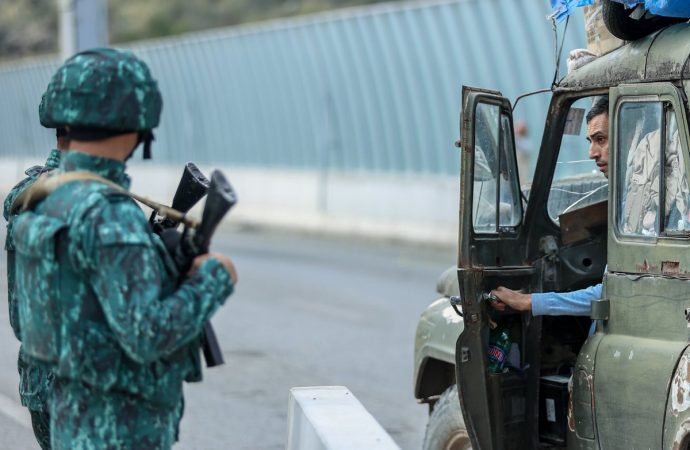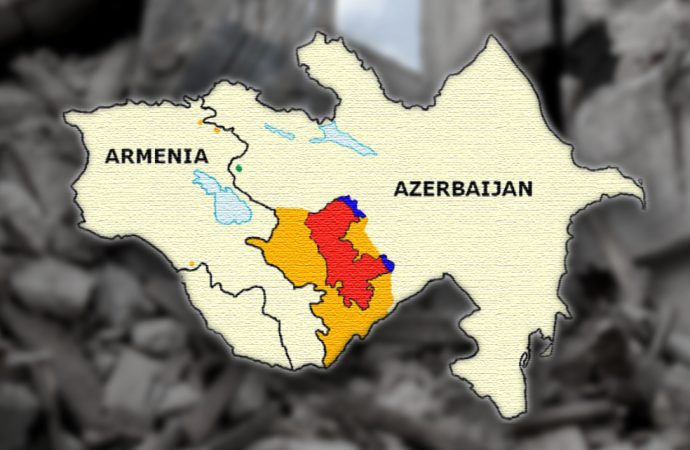Introduction The recent military conflict between Azerbaijan and the Armenian enclave has sparked concerns about the possibility of another full-scale war in the region. The conflict, centered around the Nagorno-Karabakh region, has historical, ethnic, and geopolitical complexities that contribute to the tensions. In this article, we delve into the implications of Azerbaijan’s victory, the fears
Introduction
Understanding the Conflict
Implications of Azerbaijan’s Victory
-
Humanitarian Concerns: The conflict has resulted in the displacement of thousands of people, with reports of civilian casualties and infrastructure damage. The victory by Azerbaijan raises concerns about the safety and well-being of the Armenian population in the region.
-
Geopolitical Shifts: Azerbaijan’s military success has altered the balance of power in the region, potentially impacting the influence of neighboring countries and international actors. This shift may have broader implications for regional stability and geopolitical dynamics.
-
Ethnic and Cultural Tensions: The conflict has deep-rooted ethnic and cultural dimensions, with historical grievances and identity politics playing a significant role. Azerbaijan’s victory may exacerbate these tensions, leading to further divisions and potential reprisals.
Fears of Escalating Tensions:
-
Resurgence of Violence: The unresolved nature of the Nagorno-Karabakh conflict and the historical animosity between Azerbaijan and Armenia raise concerns about the possibility of renewed hostilities in the future.
-
Regional Instability: The conflict has the potential to destabilize the wider region, with implications for neighboring countries and their security. The fear of a broader regional conflict looms large.
-
Humanitarian Crisis: The displacement of people, destruction of infrastructure, and potential reprisals could lead to a humanitarian crisis, with long-lasting consequences for the affected population.

Image by: https://pbs. twimg. com
Conclusion
Visual Table for Key Points:
| Topic | Key Points |
|---|---|
| Azerbaijan’s Victory in the Enclave | – Strategic implications of the victory |
| – Historical context and ongoing tensions | |
| Factors Potentially Escalating Tensions | – Geopolitical interests and alliances |
| – Ethnic, religious, and territorial disputes | |
| International Response to Recent Moves | – Statements from global leaders and organizations |
| – Concerns over regional stability | |
| Historical Conflicts in the South Caucasus | – Tracing longstanding conflicts in the region |
| – Current hurdles in finding a solution | |
| Dr. Elena Petrov’s Geopolitical Insights | – Perspective on recent developments |
| – Strategies for mitigating tensions | |
| Diplomatic Efforts for Resolution | – International initiatives and their impact |
| – Potential paths toward diplomatic resolutions | |
| Addressing Humanitarian Concerns | – Displacement, human rights, and aid efforts |
| – Alleviating the humanitarian crisis | |
| International Law and Conflict Resolution | – Legal frameworks and relevant agreements |
| – Accountability and justice in aftermath | |
| Global Impacts on Regional Stability | – Effects on neighboring countries |
| – Broader geopolitical dynamics and implications | |
| Prospects for Resolution and Reconciliation | – Scenarios for a sustainable solution |
| – Collective efforts for reconciliation |
Organic Keyword Usage
Keywords like “Azerbaijan victory,” “Armenian enclave conflict,” “geopolitical tensions,” and other relevant terms will be naturally integrated throughout the article.
Introduce the Knowledge Source
Dr. Elena Petrov, an esteemed expert in Eastern European and Caucasus geopolitics, provides valuable insights on the recent developments in the South Caucasus region and the potential for further conflict escalation.
Human-Centric Formatting
The article is structured for easy comprehension, with clear language and visually appealing elements. Complex geopolitical concepts will be explained in a reader-friendly manner, and the use of images and infographics will enhance understanding.

















Leave a Comment
Your email address will not be published. Required fields are marked with *